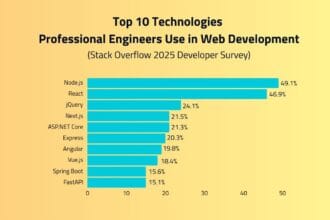If you own a smartphone, as so many people do nowadays, then you’ve probably got it loaded up with all of your favorite apps. But have you ever thought about the app creation process? Probably not, unless you’re a developer and it’s your business to use an online Android emulator or some similar tool to test out the apps before they go to market. It’s interesting to learn a bit about what goes into an app before it reaches your phone, though, which is why we’re going to go over a few myths and realities about smartphone app testing.

1. It’s Easy to Build an App
This couldn’t be more wrong. Even if you know a little bit about coding, building a workable app from the ground up is not an easy task. If it was, probably more people would do it since it can be quite profitable if you have those kinds of skills. In reality, building even the test version of a mobile app is going to take weeks, or possibly months. The only way that you’re going to speed up the process to a matter of hours or days is if you have a large team working on it around the clock, which some companies can afford to do.
2. You Can Easily Submit Your App to the App Store
Also not true. If you feel that your app is ready, and you want it to be available to people on the App Store, it needs to go through a lengthy submission process before it’s widely available. There are also plenty of reasons that it could be turned away. It could be that it crashes often, or perhaps you don’t have the copyright for some aspect of the artwork. If you use a smart camera or a microphone without the user’s knowledge, that is also enough to get your app rejected.
3. Once a User has Your App, They Will Use It Frequently
Sometimes true, but not always. There are some apps that people download to their phones and then forget about rapidly. If you release your app, and on the first day 20,000 people download it, then you’re probably going to be thrilled. However, there is a newness factor to some apps that might make them seem attractive when they’ve newly hit the market, and then the engagement numbers will quickly drop off. As for whether your app is one that people use all the time, it varies quite a bit.
4. iOS and Android Apps are the Same
This one’s not even remotely true. iOS and Android apps are developed completely separately in most cases since they are two different operating systems.
5. Mobile App Analytics will Tell You How the App is Performing
This is somewhat true. While a mobile app analytics tool will reveal some things regarding an app’s performance, others you’ll only be able to measure once you get some direct feedback from customers.
Apps have changed many of our lives, and new ones come out every day. If you have created one that has made some serious market inroads, that’s commendable. Remember, though, that there are always going to be new ones coming out, and what’s hot one day may well be forgotten by the next.








